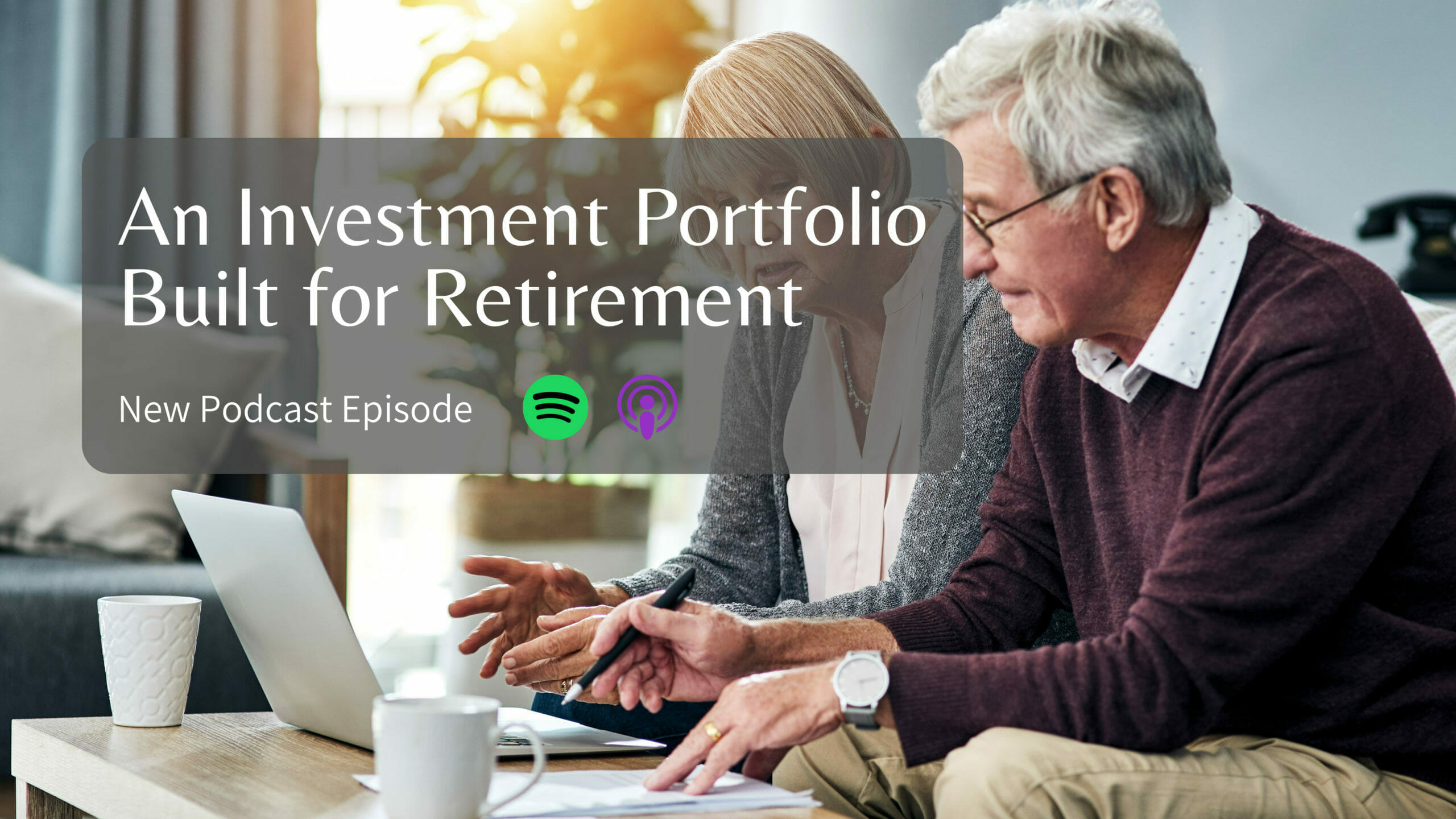
An Investment Portfolio Built for Retirement
On this episode of A Wiser Retirement Podcast, Casey Smith, Matthews Barnett, CFP®, ChFC®, CLU® and Brad Lyons, CFP® talk about how to build an investment portfolio for retirement. They explain how to be your own pension fund manager, the importance of having cash reserves, and how to diversify your portfolio in retirement.
Listen on Apple Podcasts or watch on YouTube:
SUMMARY:
Be Your Own Pension Fund Manager
Pension Fund Managers quite often look at the entire fund, the expected returns from different asset classes, and the required rate of return. Knowing this, start with considering your current liabilities and future liabilities. Factoring in liabilities and the amount of risk you’re willing to take on can help you create your plan. Next, think about the return you will need to reach your goals and compare it with the expected return. This is important because it will give you a better idea of where you need to allocate your funds.
Overall, being your own pension fund manager can create a sense of security for those who have worked hard and saved for years on end.
Prepare for Anything
The first step in building a personal pension plan is preparation. Start by looking at your current expenses to decide how much money you need to set aside. In retirement, it’s most common to always keep around two years’ worth of cash in your portfolio. This will help you be prepared for any crisis that comes your way. Also, it’s important to stay calm during times of crisis. Don’t panic or liquidate your investments, instead act like a pension company. A pension company would never liquidate their investments because they have a long-term plan in place that factors in crises and market volatility. Be confident in your investments.
Monte Carlo Analysis
The Monte Carlo analysis is useful when you’re trying to reach your retirement expense goals. It can be described as running a thousand different trials of stock and bond returns in a portfolio, then taking the median five hundred to get the highest probability of success for reaching retirement expense goals. This analysis is important because it can help you understand the amount of risk present. It can also give you confidence that a major market downturn won’t affect your current lifestyle.
Diversify Your Retirement Portfolio
To build a diversified pension plan in your portfolio and increase overall expected return, it’s important to utilize both public and private markets. Combine different asset classes such as, fixed income, real estate, and stocks. Doing this can help you achieve a higher rate of return and meet your income needs during retirement. Overall, keep your portfolio diversified and invest for the long term so you can have a smooth start to retirement.
Hedge for the U.S. Dollar
To achieve a diversified portfolio, it is important to include foreign stocks in the mix, that are not hedged to the U.S. Dollar. It’s best to allocate around 10% to foreign stocks to minimize risk. This can protect your portfolio from international currency swings. If the U.S. dollar declines, your foreign investments would go up in value allowing you to receive a higher return.
Personalize Your Pension Fund
When creating your personalized pension fund, it’s important to keep in mind that it has a long lifespan of around 60-to-80-years. During this time, there’s bound to be market ups and downs. Take into consideration, the more retirement planning, diversification, and cash reserves you have the smoother the start to retirement will be for you!
Download our white paper on “Your Pre-Retirement Checklist”
TIMESTAMPS:
0:00 Intro
2:35 Be Your Own Pension Fund Manager
7:08 Prepare for Anything
12:43 Monte Carlo Analysis
17:19 or 28:06 Diversify Your Retirement Portfolio
29:49 Hedge for the U.S. Dollar
32:45 Personalize Your Pension Plan
LINKS:
Learn more about Casey Smith and connect with him on Twitter.
Learn more about Brad Lyons.
Learn more about Matthews Barnett.
CONNECT:
Twitter, Instagram, Facebook, LinkedIn, and YouTube.
Learn more about A Wiser Retirement podcast and access previous episodes.
Share This Story, Choose Your Platform!
Wiser Wealth Management, Inc (“Wiser Wealth”) is a registered investment adviser with the U.S. Securities and Exchange Commission (SEC). As a registered investment adviser, Wiser Wealth and its employees are subject to various rules, filings, and requirements. You can visit the SEC’s website here to obtain further information on our firm or investment adviser’s registration.
Wiser Wealth’s website provides general information regarding our business along with access to additional investment related information, various financial calculators, and external / third party links. Material presented on this website is believed to be from reliable sources and is meant for informational purposes only. Wiser Wealth does not endorse or accept responsibility for the content of any third-party website and is not affiliated with any third-party website or social media page. Wiser Wealth does not expressly or implicitly adopt or endorse any of the expressions, opinions or content posted by third party websites or on social media pages. While Wiser Wealth uses reasonable efforts to obtain information from sources it believes to be reliable, we make no representation that the information or opinions contained in our publications are accurate, reliable, or complete.
To the extent that you utilize any financial calculators or links in our website, you acknowledge and understand that the information provided to you should not be construed as personal investment advice from Wiser Wealth or any of its investment professionals. Advice provided by Wiser Wealth is given only within the context of our contractual agreement with the client. Wiser Wealth does not offer legal, accounting or tax advice. Consult your own attorney, accountant, and other professionals for these services.





